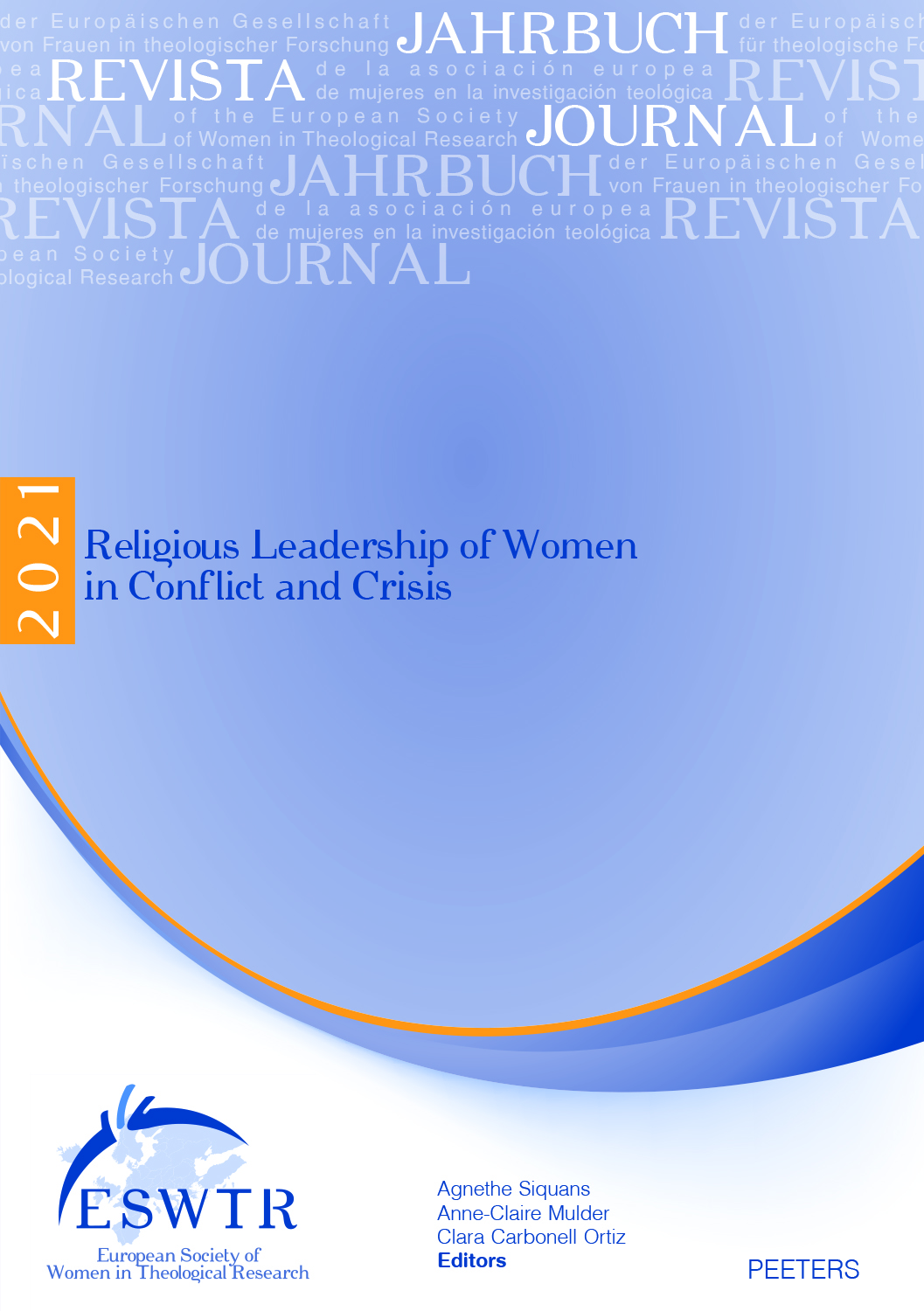 previous article in this issue previous article in this issue | next article in this issue  |

Preview first page |
Document Details : Title: Comunidades de la Reforma pioneras en la concesión de ministerios a las mujeres Subtitle: La tradición común Author(s): GÓMEZ ACEBO, Isabel Journal: Journal of the European Society of Women in Theological Research Volume: 25 Date: 2017 Pages: 203-218 DOI: 10.2143/ESWTR.25.0.3251313 Abstract : El propósito de este artículo es demostrar que desde una tradición común se ha llegado a lecturas diferentes en lo que respecta a la ordenación femenina. Partimos de los textos de Pablo, que hablan del silencio de las mujeres, para ofrecer una visión de la realidad en las distintas comunidades cristianas. Allí, descubrimos órdenes de vírgenes, viudas, diaconisas, algún testimonio epigráfico sobre mujeres sacerdotes e incluso obispos y en la baja Edad Media, encontramos abadesas sometidas a ceremonias de ordenación. Pero todo este protagonismo muere por varias razones: la sospecha de impureza femenina, la adopción del concepto aristotélico de subordinación de la mujer y la composición de una sociedad que daba prioridad a los varones ¿Cómo iban a reaccionar los líderes reformistas a esta situación? Suprimieron la figura del sacerdote, convirtiéndole en un pastor que basa gran parte de su labor en la predicación, y las mujeres, silenciadas por el mandato de Pablo, quedaban ausentes de ese rol. Pero algunas comunidades dieron un cambio de rumbo a principios del siglo XVIII, abriendo otras posibilidades. Analizaremos el Brüdergemeine en Moravia, los cuáqueros, shakers, metodistas wesleyanos y el Ejército de Salvación porque supieron hacer otras lecturas cristianas, antes del feminismo, y sembraron las semillas que dieron fruto en el siglo XX. The purpose of this article is to show, from a common tradition, different lectures in respect to the ordination of women. It starts with texts from Paul, ordering the silence of women in church, to show a vision of reality in different Christian communities, discovering orders of virgins, widows, deaconesses, some epigraphic documents with the existence of women priests including bishops, and, in the low Middle Ages, abbesses submitted to ordination ceremonies. But all this prominence died for various reasons: the suspicion of feminine impurity, the adoption of the Aristotelian principle of the subordination of women and the composition of a society that gives priority to males. How were reformed leaders going to react to this situation? They transformed the figure of the priest into a shepherd who spends a significant part of his work preaching, and the women, silenced by Paul’s order, became absent from this category. But at the beginning of the XVIIIth century, some communities took a turn opening other possibilities. The Brüdergemeine in Moravia, the Quakers, Shakers, Wesleyan Methodists and the Salvation Army all provided different Christian lectures, before feminism, and planted the seeds that gave fruit in the XXth century. |
 |


